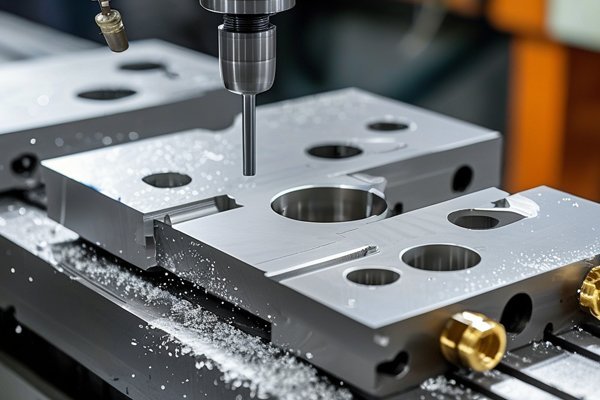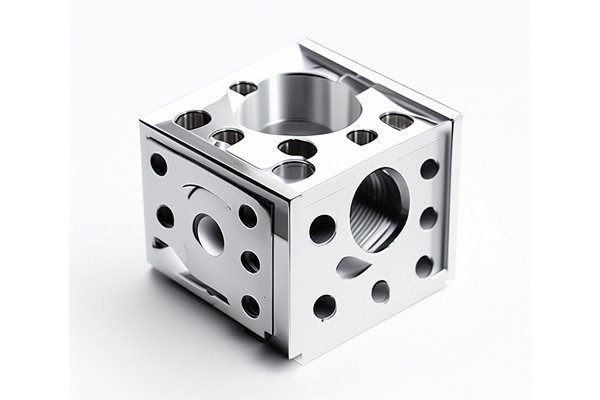Did you know that the global manufacturing industry is projected to reach $3.2 trillion by 2025? With such intense competition in a rapidly evolving market, the demand for speed and efficiency in production processes has never been higher. One particular sector that has gained significant attention for its efficiency is CNC (Computer Numerical Control) precision machining. But how effectively can CNC machining meet the relentless demands of urgent production orders? This blog will explore that question in depth and delve into the methods, technology, and strategic practices that allow CNC machining to respond swiftly and reliably to urgent production needs.
Understanding CNC Precision Machining
CNC precision machining is a highly automated manufacturing process that utilizes computer systems to control machine tools, ensuring precise and repeatable production of complex parts and components. This level of precision is essential in many industries, including aerospace, automotive, medical, and electronics. The key advantage of CNC machining lies in its ability to produce intricate designs quickly, minimizing human error while maximizing quality and efficiency.
The Challenge of Urgent Production Orders
Urgent production orders pose unique challenges to manufacturers. Factors that contribute to the urgency include unexpected market demand, last-minute design changes from clients, or the need to replace faulty components swiftly. When faced with such scenarios, manufacturers must strike a balance between speed and quality, ensuring that rushed production does not compromise the final product.
Common Challenges Faced:
Manufacturers often have limited resources in terms of both machinery and labor. Rushing an order may lead to a strain on capacity, causing delays in other scheduled jobs.
CNC machines require time for setup and calibration before they can start producing parts. Reducing this time is crucial when dealing with urgent orders.
A drawback of speeding up production can be a decrease in quality assurance checks, which can lead to defects and costly remakes.
Material shortages and delays in logistics can exacerbate the urgency, particularly if suppliers are unable to meet the demands at short notice.
How CNC Precision Machining Meets Urgent Orders
Despite the challenges posed by urgent production orders, CNC precision machining has several inherent strengths that allow it to effectively navigate these scenarios. Below are the methods and strategies that enable manufacturers to meet tight deadlines without sacrificing quality.
Efficient planning is crucial. Employing sophisticated scheduling software can help manufacturers allocate machines and labor optimally:
Rapid prototyping techniques and interchangeable tooling can significantly decrease lead times.
Maximizing the capabilities of CNC machinery is crucial to speed.

Quality must not be compromised even under tight deadlines.
Strong supplier relationships are vital in ensuring that material shortages do not hinder urgent production.
Real-World Applications of CNC Machining in Urgent Production
To illustrate how CNC precision machining successfully meets urgent production demands, let’s explore a few real-world applications across various industries.
Aerospace Industry
In the aerospace sector, the need for urgent parts, often due to aircraft maintenance or part failures, can be significant. Companies adopt CNC machining for:
Automotive Industry
The automotive sector frequently faces challenges along the supply chain that require companies to pivot quickly:
Medical Device Manufacturing
In the medical industry, time is often of the essence, and CNC machining serves as a critical solution:
CNC precision machining is more than a manufacturing method; it is a strategic advantage in meeting urgent production demands effectively. By leveraging advanced workflow planning, rapid prototyping, optimization of technology, stringent quality control, and nurturing supplier relationships, manufacturers can adeptly navigate the challenges posed by urgent orders.
This blog underscores the importance of investing in CNC technologies and leveraging strategic practices, not only as responses to immediate challenges but as proactive steps towards achieving efficiency, quality, and reliability in production. As industries evolve and demand escalates, understanding and implementing these techniques will remain crucial in maintaining competitiveness and meeting the ever-growing customer expectations in manufacturing.
In a world where time is often equated with money, the ability to utilize CNC precision machining efficiently can mean the difference between success and failure. It’s not just about getting things done quickly; it’s about doing them right, ensuring businesses continue to innovate and thrive in an increasingly impatient marketplace. So, as you reflect on this topic, consider how CNC precision machining can be a powerful tool to meet both present and future production needs effectively.






